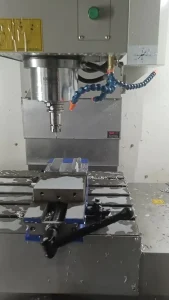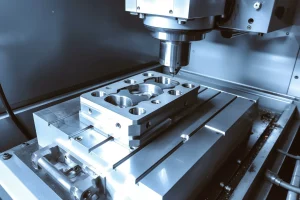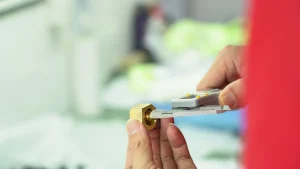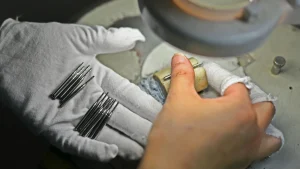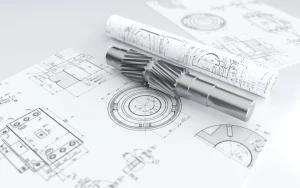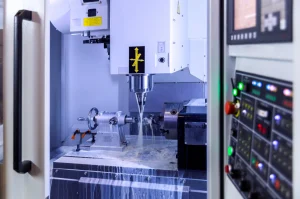In today’s automotive industry’s pursuit of higher performance, stronger safety, and stricter environmental protection, the precision of each component is directly related to the performance of the vehicle. When traditional manufacturing methods encounter bottlenecks in the face of precision, efficiency, or complex structures, CNC (Computer Numerical Control) machining technology, with its powerful capabilities, is becoming a key driving force in driving the upgrading of auto parts manufacturing.
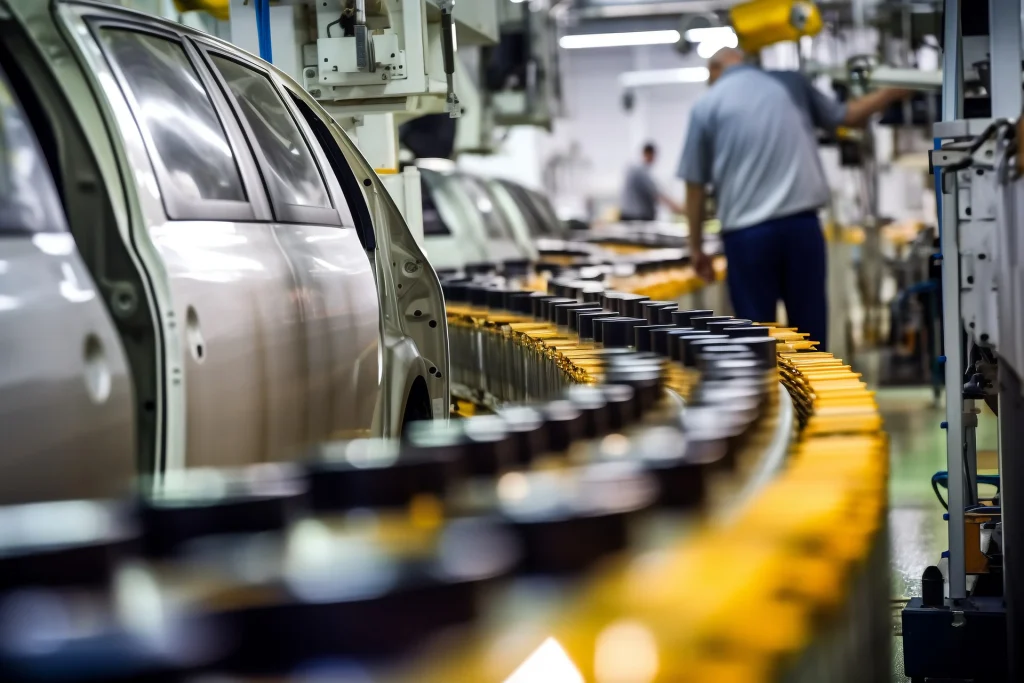
Automotive Parts: The Ultimate Demand for Precision and Complexity
Automobiles, especially their core systems, have almost demanding manufacturing requirements for components:
Engine system:Core components such as cylinder block, cylinder head, crankshaft, camshaft, etc., its complex internal oil channels, waterways, and high-precision mating surfaces, the tolerance requirements are often measured in micrometers (μm). Small errors can lead to seal failure, increased friction, reduced performance, and even serious failure.
Transmission System:Transmission housings, gears, transmission shafts and other components not only require extremely high dimensional accuracy and geometric tolerances, but also their surface finish and deformation control after heat treatment are crucial, directly affecting shift smoothness, noise level, and durability.
Chassis and Suspension Systems:Components such as steering knuckles, control arms, and subframes are subjected to complex dynamic loads that require high structural strength, lightweight designs (such as complex shapes with optimized topology), and positional accuracy at critical connection points.
New energy core components: The battery box of electric vehicles (requiring high sealing, lightweight and strength), motor housing, electronic control unit radiator, etc., have complex structures and special requirements for thermal management and electromagnetic shielding.
General key parts:Brake system calipers, hydraulic valve bodies, sensor brackets, etc., also require high precision and reliable performance.
CNC Machining: A Precision Tool for Automotive Demands
In the face of these challenges, CNC machining stands out with its unique advantages:
Unparalleled Precision and Consistency:Modern multi-axis CNC machines, such as five-axis linkage machining centers, can achieve micron-level (μm) or even sub-micron level machining accuracy and maintain this accuracy consistency over long periods of high-volume production, which is the foundation for ensuring the interchangeability and reliability of automotive parts.
Mastering Extremely Complex Geomeries:The powerful CAM software combined with multi-axis linkage technology enables CNC to easily process structures such as free-form surfaces, complex internal cavities, deep holes, and special-shaped thin walls that are difficult to achieve with traditional methods, perfectly achieving lightweight design and functional integration.
Wide Material Adaptability:From high-strength alloy steel, aluminum alloys, and cast iron to engineering plastics and composite materials, CNC machining can efficiently and stably handle various materials required by the automotive industry.
High flexibility and fast response:Program control makes it quick and convenient to switch between different product processing, especially suitable for the automotive industry for multiple varieties, small batches (such as prototypes, prototypes, spare parts) or frequent design updates, accelerating the product development cycle.
Superior Surface Quality:By finely controlling cutting parameters and tool paths, CNC machining can directly achieve excellent surface finishes, reducing subsequent grinding, polishing, and other processes, improving efficiency and reducing costs.
Core Application Scenarios of CNC Machining in Auto Parts Manufacturing
Engine core components manufacturing: Precision boring and milling of cylinder block and cylinder head; high-precision contour machining of crankshafts and camshafts; Processing of precision parts for fuel injection systems.
Precision manufacturing of transmission system: milling of complex cavities of gearbox housings; hard tooth surface finishing of high-precision gears; Precision milling or turning of drive shaft splines.
Chassis and suspension system key parts: Aluminum alloy control arm and steering knuckle five-axis milling processing to achieve lightweight and high strength; Precision machining of complex subframes before welding.
New energy vehicle components: Precision machining and sealing surface treatment of aluminum alloy/composite battery boxes and trays; precision turning-milling composite processing of motor housing and end cap; Efficient milling of electronically controlled heat sinks.
Brake and steering system: Brake caliper body processing; Precision steering rack and steering column processing; Complex runner processing of hydraulic valve blocks.
Prototype and Mold Manufacturing:Prototype new parts quickly and accurately; Injection molds and die-casting molds required for processing automotive interior and exterior parts.
Choosing a Professional CNC Machining Partner: The Decisive Point in Auto Parts Manufacturing
When choosing a CNC machining service provider, auto parts manufacturers need to focus on:
Technical capabilities:Whether it has advanced multi-axis CNC equipment (especially five-axis machining centers, turning-milling composite centers), high-precision testing equipment (such as CMM), and professional CAM programming and process planning capabilities.
Quality system:Whether it has passed IATF 16949 and other automotive industry quality management system certifications, with strict process control and traceability capabilities.
Material and process experience:Whether you have rich experience in the processing characteristics, deformation control after heat treatment, surface treatment, etc. of commonly used materials for automobiles (especially high-strength steel and aluminum alloys).
Capacity and stability: Can meet the stable delivery needs of mass production, with a complete production management system.
Collaborative development capabilities: Whether you have the ability to participate in product pre-design optimization (DFM) and provide manufacturability suggestions to jointly reduce costs and improve performance.
Future Trends: Deep Integration of CNC Machining and Automotive Intelligent Manufacturing
With the rapid development of the automotive industry towards electrification, intelligence, and lightweight, CNC machining technology is also evolving:
Higher speed, smarter, more compound: High-speed machining, linear motor drive, intelligent machine tool (adaptive control, condition monitoring), turning-mill composite machining center will be further popularized to improve efficiency and precision.
Seamless integration with automation and digitalization: CNC machine tools are deeply integrated into automated production lines (FMS/flexible manufacturing systems), and data interconnection is realized through MES systems, forming a key link in intelligent manufacturing.
Breakthrough in new material processing challenges:Specialized CNC machining technology and tool technology for new materials such as carbon fiber composites and high-strength lightweight alloys will continue to mature.
Hybrid application of additive manufacturing (3D printing) and CNC:Combining the free forming capabilities of additive manufacturing with the finishing advantages of CNC to provide a new solution for manufacturing next-generation automotive parts that are more complex, lightweight, and functionally integrated.
Epilogue
CNC precision machining is no longer an “option” in auto parts manufacturing, but a “must” and a core driving force to ensure performance, safety and reliability. With its excellent precision, ability to handle complex geometries, high flexibility and stability, it provides solid technical support for the core system of automobiles. Choosing a CNC machining partner with leading technology, rich experience, and reliable quality to jointly embrace the future of intelligent manufacturing is the key for auto parts manufacturers to win the opportunity in the fierce competition and drive the continuous upgrading of the industry. Precision manufacturing is becoming the silent language that defines the quality and performance of automobiles.

